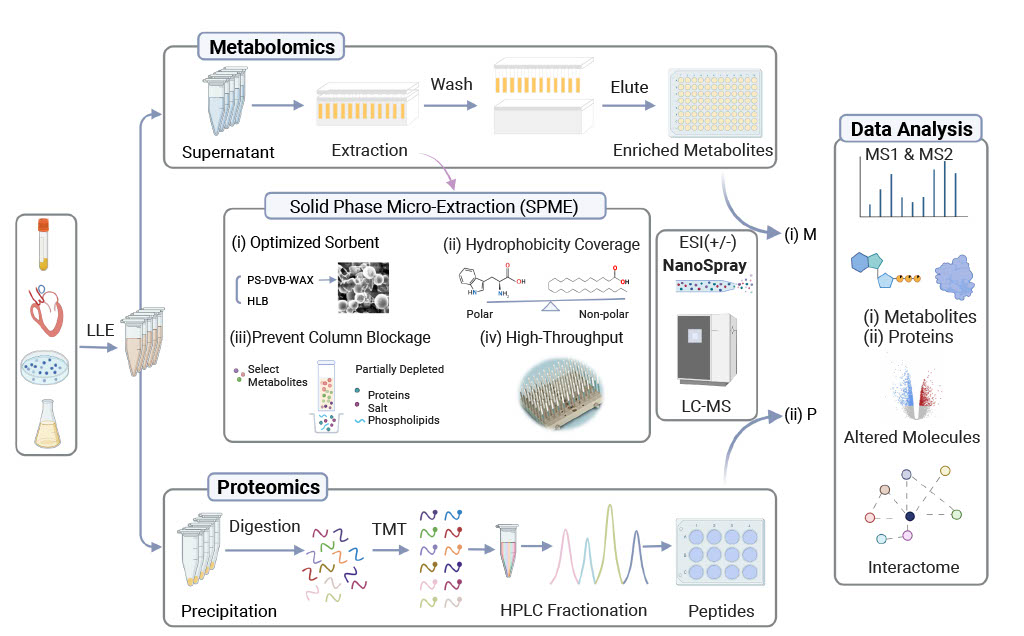Lin Lab
Research Interests
Our research aims to use the power of precision mass spectrometry towards functional multi-omics-based systems biology to uncover the molecular networks altered in Alzheimer’s disease and other brain pathologies.
Current Research Areas:
1. Mapping protein-protein interactions, protein-metabolite/lipid interactions, and phosphoproteome linked to AD progression and other neurodegenerative diseases. Single markers often provide limited information about underlying pathogenesis processes, particularly given that neurodegenerative diseases are complex, heterogeneous disorders that affect various cellular systems. By developing, optimizing, and applying large-scale functional proteomics, metabolomics, lipidomics, phosphoproteomics, and bioinformatics technologies, we generate large-scale interactions of proteins and small molecules to investigate how specific interactome contribute to disease progression.
2. High-resolution LC-MS-based integrative metabolomic and proteomic platform development and application. Different omics platforms provide distinct but complementary information. Our ultra-high sensitivity LC-MS workflow allows efficient, quantitative untargeted metabolomic (including lipidomic) and proteomic analysis on the same sample.

3. Discovering disease-associated native protein complexes using mass spectrometry. Proteins rarely act alone in cells but rather form complexes. Investigating native complexes can reveal the physical interactions, functional partnerships, and biological roles. Our LC/MS-based analytical workflow aims to uncover physical interactions associated with brain diseases.